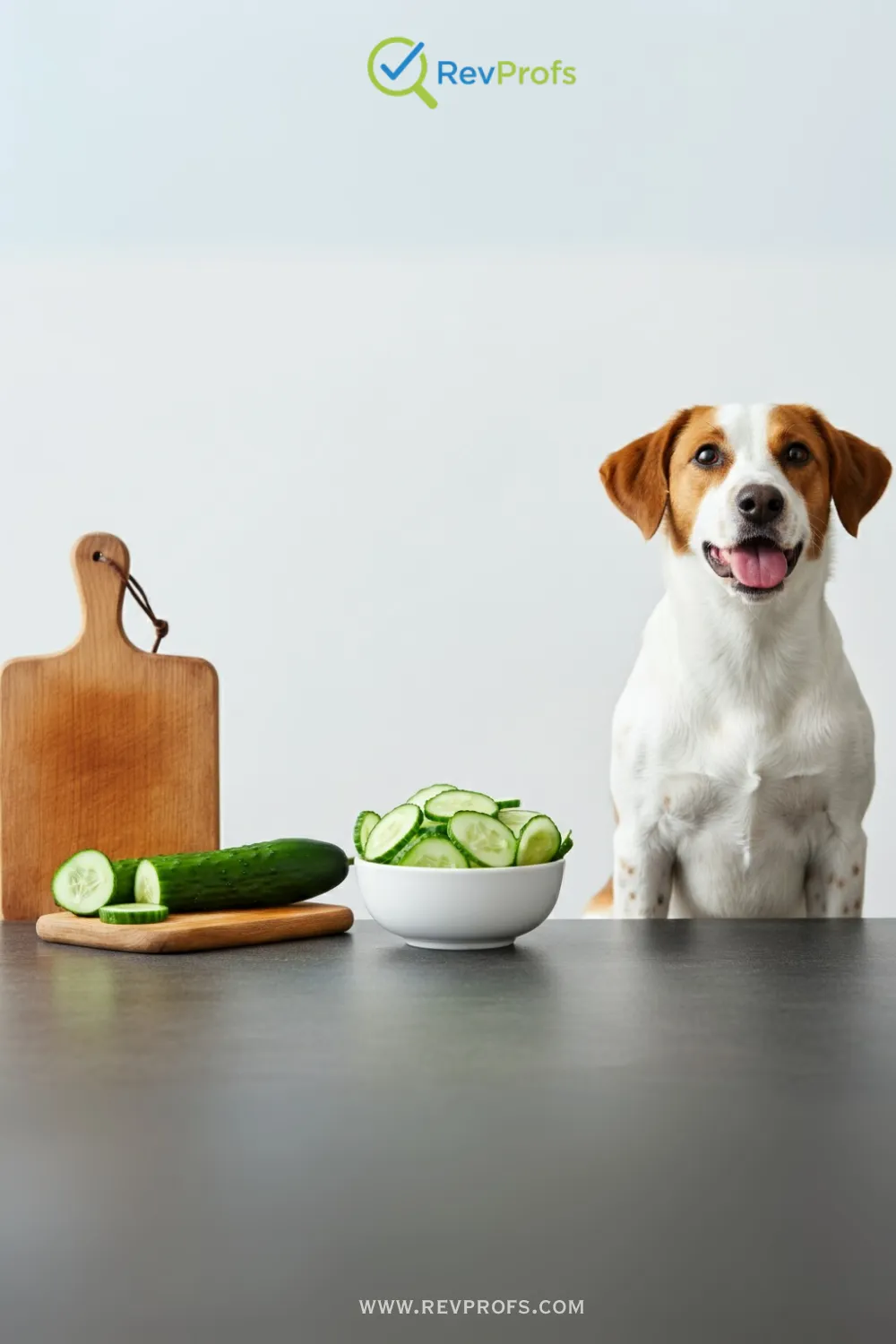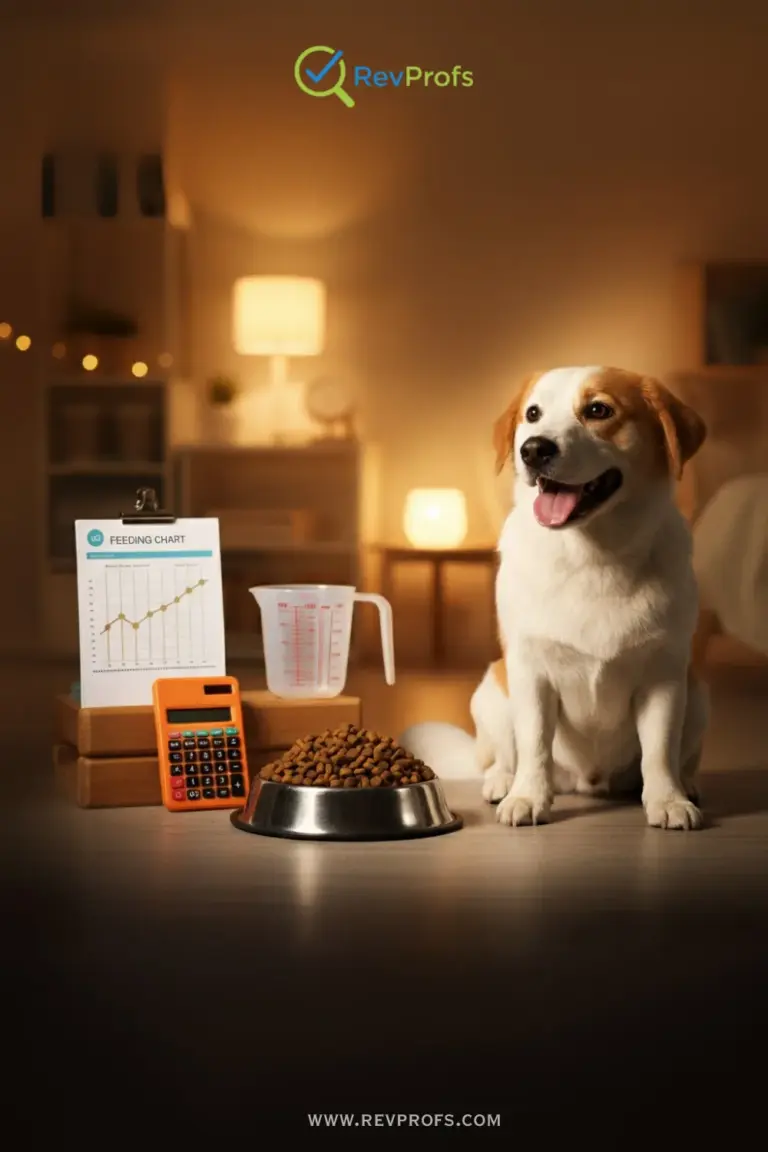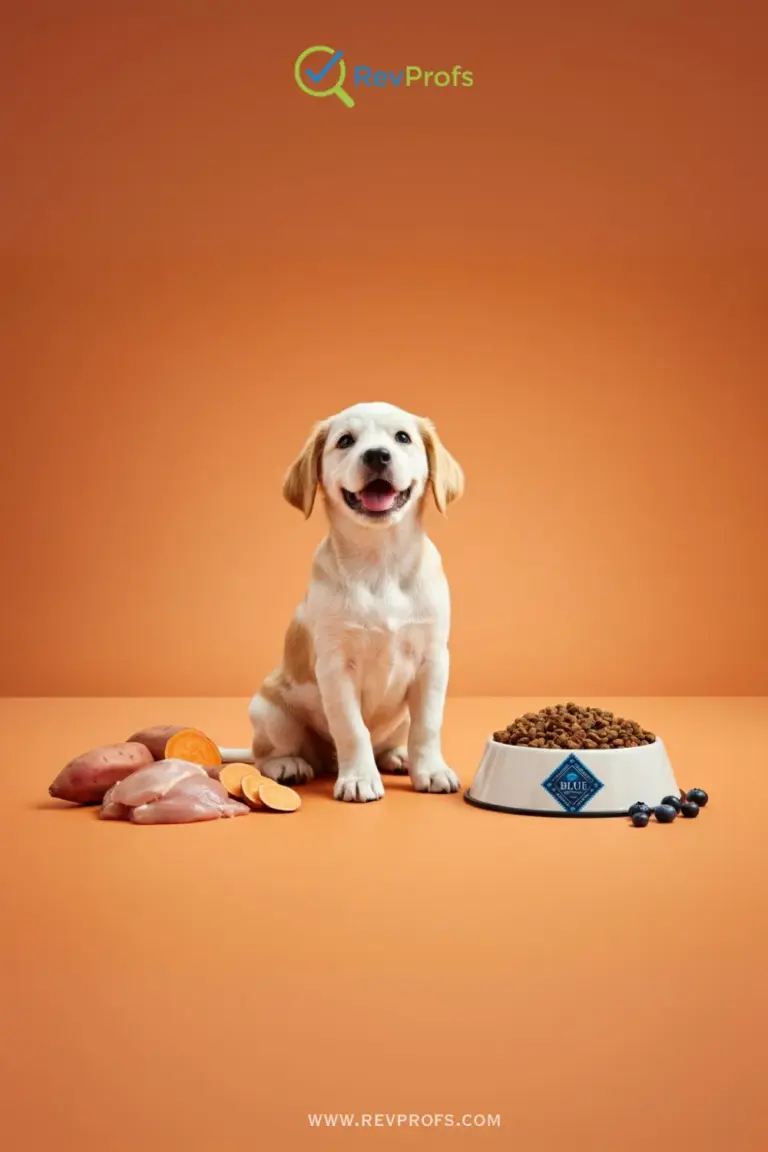Can Dogs Have Cucumbers? 5 Surprising Health Benefits
As you’re slicing up a cool, refreshing cucumber for your salad, you might feel a pair of hopeful eyes on you. It’s a familiar scene for many pet parents: your dog is watching, curious about the crunchy snack you’re enjoying. This naturally leads to the question, can dogs have cucumbers? It’s wonderful that you’re asking, because checking before sharing human food is a great habit for any loving pet owner.
The happy answer is yes, dogs can absolutely have cucumbers! Unlike some other fruits and vegetables, cucumbers are a safe, low-calorie treat that most dogs love. They offer a satisfying crunch and a boost of hydration, making them an excellent snack. In this guide, we’ll explore the many cucumber benefits for dogs, discuss how to serve them safely, and answer common questions like “are cucumbers good for dogs?” and whether you should avoid the skin or pickles.
Are Cucumbers Good for Dogs? A Look at the Health Perks
Cucumbers are more than just a crunchy, watery snack. They are packed with vitamins and minerals that can contribute positively to your dog’s health. They consist of about 96% water, making them a fantastic way to help keep your dog hydrated, especially on warm days or after a long walk.
Here are some of the top cucumber benefits for dogs:
- Low in Calories: For dogs that need to watch their weight, cucumbers are an ideal treat. They are very low in calories, fat, and sodium, so you can offer them without worrying about derailing your pup’s diet. This makes them a great alternative to many commercial dog biscuits.
- Rich in Vitamins: Cucumbers contain important vitamins like Vitamin K, which is essential for blood clotting and bone health, and Vitamin C, a powerful antioxidant that supports the immune system.
- Packed with Minerals: They provide minerals like potassium, which is important for heart and kidney function, and magnesium, which helps with muscle function and energy production.
- Promotes Fresh Breath: Cucumbers contain phytochemicals that can help combat the bacteria in your dog’s mouth that cause bad breath. A few slices can act as a natural breath freshener.
- Supports Joint Health: Cucumbers contain silica, a trace mineral that is known to help strengthen connective tissues. This can contribute to better joint health, which is especially beneficial for senior dogs or breeds prone to joint issues.
With all these benefits, it’s clear that the answer to “are cucumbers good for dogs?” is a resounding yes. They are a healthy, refreshing treat that you can feel good about sharing.

Can Dogs Have Cucumbers? How to Prepare Them Safely
While cucumbers are safe, the way you prepare them matters. Following a few simple steps will ensure this healthy snack is a safe one for your furry friend. When it comes to cucumber and dog health, proper preparation is key to avoiding any potential risks.
1. Wash Thoroughly
Always wash the cucumber well before giving it to your dog. The skin can have pesticides, waxes, and dirt on it from the farm and the grocery store. A good rinse under running water is usually sufficient to remove these residues.
2. To Peel or Not to Peel: Can Dogs Eat Cucumber Skin?
This is a very common question. Yes, can dogs eat cucumber skin is something many owners wonder about. The skin is where many of the nutrients and fiber are concentrated, so it can be beneficial. However, the skin can also be a bit tough for some dogs to digest, especially for puppies or dogs with sensitive stomachs.
If you’re giving cucumber to your dog for the first time, you might want to peel it to be on the safe side. If your dog handles it well, you can try leaving some of the skin on next time. For most dogs, the skin is perfectly fine in moderation.
3. Cut into Safe, Bite-Sized Pieces
The biggest risk associated with cucumbers is choking. A whole cucumber or even a large spear can be a hazard, particularly for small dogs or dogs who tend to gulp their food down without chewing.
To prevent this, always cut the cucumber into small, manageable pieces. You can slice them into thin rounds or chop them into small cubes. The right size depends on the size of your dog. The goal is to make the pieces small enough that they won’t get lodged in your dog’s throat.
4. Serve Raw Cucumber for Dogs
The best way to serve cucumber is raw. Raw cucumber for dogs retains all of its nutrients and its satisfying crunchy texture. There’s no need to cook it. Just wash, chop, and serve.
How Much Cucumber Can a Dog Have?
Like any treat, moderation is key. Even healthy snacks like cucumbers should only make up about 10% of your dog’s daily calorie intake. The rest should come from their balanced, high-quality dog food.
Feeding too much cucumber can lead to digestive upset, like gas or diarrhea, simply because of the high water and fiber content. It’s not harmful, but it can be uncomfortable for your pup and messy for you.
Here’s a simple guideline:
- For small dogs: A few small slices a day is plenty.
- For medium to large dogs: A handful of chopped pieces is a good amount.
Always start with a small amount to see how your dog’s system reacts. If they handle it well, you can feel confident offering it as a regular crunchy treat.
What About Pickles? Can Dogs Eat Pickled Cucumbers?
This is a crucial distinction to make. While fresh cucumbers are a healthy snack, you should never feed pickles to your dog. The answer to can dogs eat pickled cucumbers is a firm no.
Pickles are cucumbers that have been fermented or preserved in a brine of salt, vinegar, and various spices. This mixture is what makes them unsafe for dogs.
- High Sodium Content: The amount of salt in pickles is far too high for a dog’s system. Too much sodium can lead to dehydration, high blood pressure, and even sodium ion poisoning in severe cases.
- Harmful Spices: Pickling brines often contain ingredients that are toxic to dogs, such as garlic and onions.
- Vinegar: The high acidity of vinegar can cause digestive upset for your dog.
So, while it may be tempting to share a pickle from your sandwich, please resist. Stick to fresh, plain, raw cucumber for dogs.
In summary, the next time your dog gives you those pleading eyes as you’re making a salad, you can confidently share a piece of cucumber. Knowing the answer to can dogs have cucumbers and how to prepare them correctly allows you to add a healthy, hydrating, and enjoyable snack to your dog’s treat rotation. It’s a simple way to show them some love while supporting their overall health.
FAQs About Dogs and Cucumbers
- So, can dogs have cucumbers safely?
Yes, absolutely! Cucumbers are a safe and healthy low-calorie snack for dogs. Just be sure to wash them thoroughly and cut them into bite-sized pieces to prevent choking. When introducing any new food, start with a small amount to see how your dog’s stomach handles it. - Are cucumbers good for dogs that are overweight?
They are one of the best treats for dogs on a diet! Because cucumbers are about 96% water and very low in calories and fat, they make a perfect crunchy snack that won’t contribute to weight gain. They can be a great substitute for high-calorie commercial dog biscuits. - Can dogs eat cucumber skin?
For most dogs, the skin is perfectly fine to eat and even contains beneficial fiber and nutrients. However, it can be a little tough for some dogs to digest. If your dog has a sensitive stomach or is trying cucumber for the first time, you might want to peel it just to be safe. - Can my dog eat pickled cucumbers?
No, you should never feed pickles to your dog. Pickles are made with a brine that is very high in salt, which can be dangerous for dogs. They also often contain spices like garlic and onions, which are toxic to dogs. Always stick to plain, fresh cucumbers.
Ready for the Next Step?
Your pet's journey doesn't end here. Explore our expert guides to ensure they get the best care at every stage.
Puppy & Dog Care
From choosing the right food to understanding their behavior, our dog care guides cover everything you need to know.
Explore Dog GuidesGear & Product Reviews
Find honest, in-depth reviews on the latest pet gear, from smart collars to durable toys, and make informed decisions.
See All Reviews


